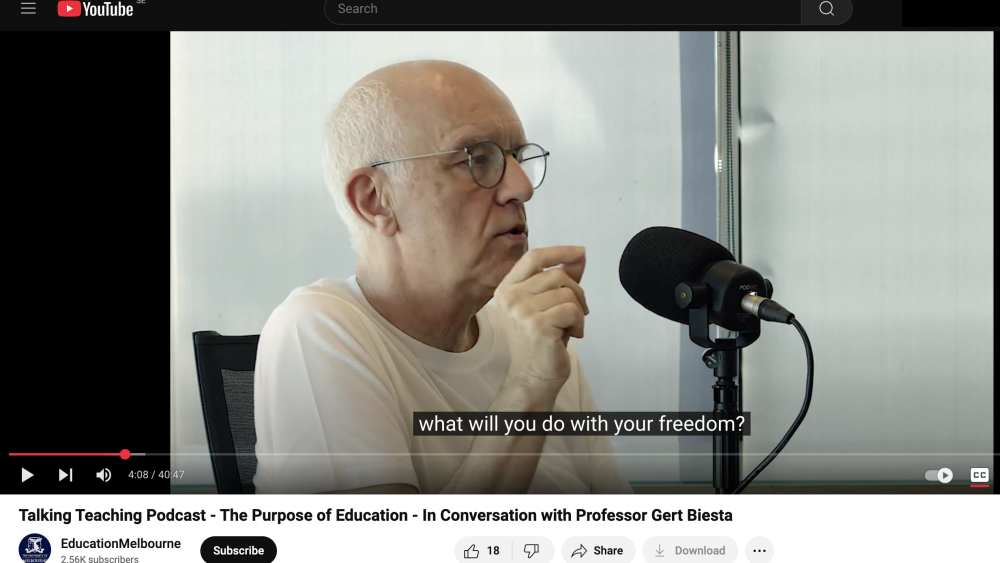Educational researcher Gert Biesta discusses the purpose of education on the podcast Talking Teaching (youtube video embedded below).
In the episode, Biesta explains the three purposes of education: qualification (equipping students to function in the workforce and society; so understanding, skills, capabilities), socialisation (providing students with a sense of orientation in the world, and teaching cultural practices and traditions), and subjectification (encouraging students to be the subjects of their own lives, not objects of all the other players and forces; becoming autonomous and independent in thinking and acting).
These three purposes are not necessarily aligned with each other. Biesta uses an image to explain how the three play together: they are like three boards in a setup of 3D chess, where a move on one board also influence the games on the others. He gives an example from teaching history: if we focus on memorizing and reproducing facts (qualification), that implies that that is what we value and that that is our understanding of history (socialisation), and how we see the students’ role in the world — in this case to not engage with history and build a relationship with it (subjectification).
If we forget the subjectification role of education, if we don’t ask our students “what will you do with your freedom?”, it does not matter how well we do on the two other fronts. Biesta’s example is Nazi Germany: “they were brilliant at socialization. They were rather good at qualification, but they paid no attention to subjectification. And then you have systems that perform really highly, but if they forget to take care of the soul of the person, they become utterly dangerous.”
So, what will we do with our freedom? What will we use our academic freedom for? What will we teach our students?

